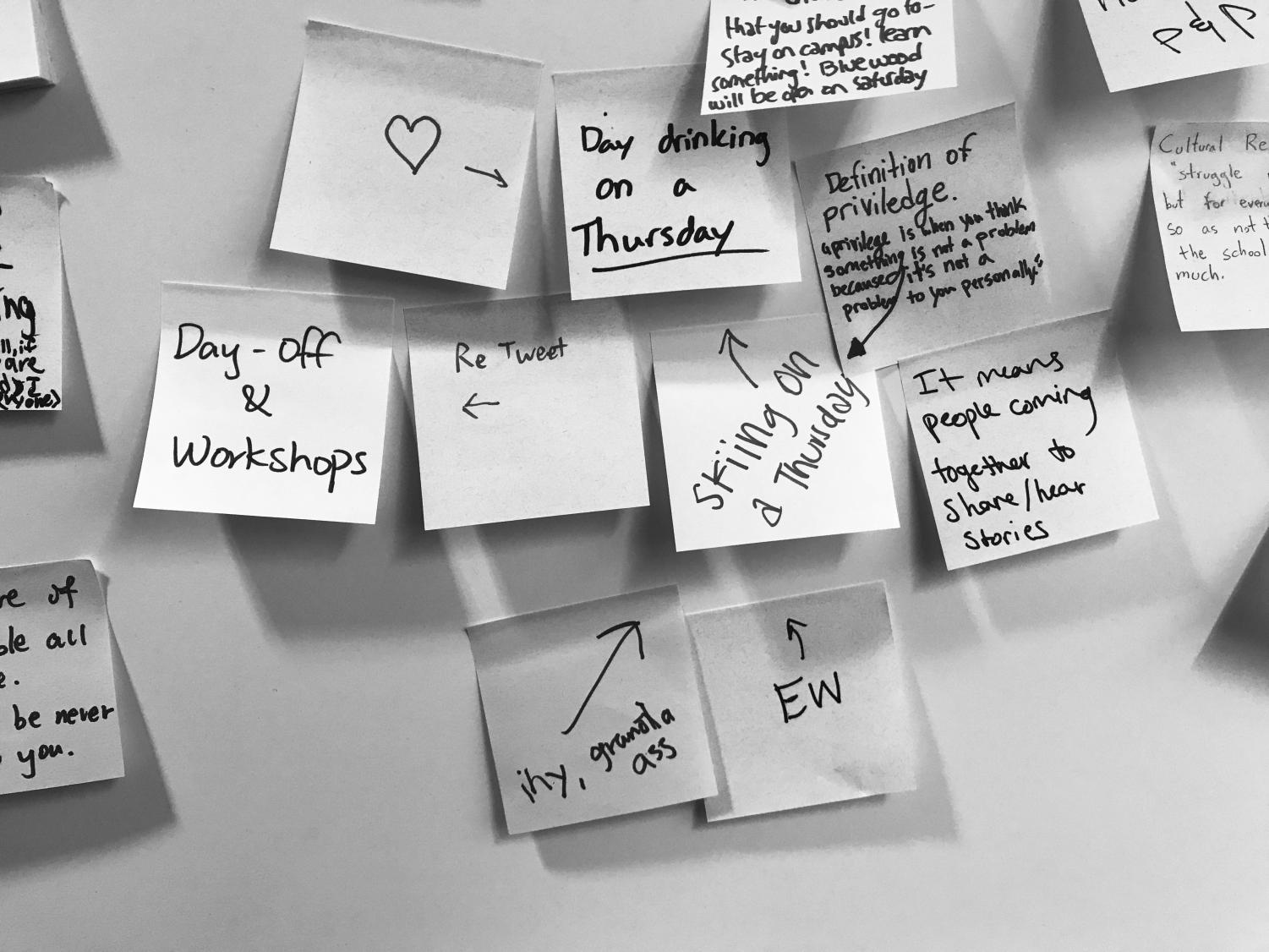Preparing for Power and Privilege Symposium 2019
January 31, 2019
Classes will be cancelled Feb. 21 for the annual Power and Privilege Symposium. Throughout the day, students will lead hour-long sessions and conversations open to everyone. It is up to the students to decide which sessions they want to attend, how many or if they attend at all.
Last year, junior Megan Waldau, the executive director of the symposium, noticed that while many students attended the symposium, others also treated the day as a free day.
“Attacking Apathy is our theme this year, it was really inspired by the blatant response I saw last year to the symposium,” Waldau said.
Leading up to the symposium last year, a poster in the library asked “What does Power and Privilege mean to you?”
“People could leave sticky notes about what it meant to them,” Waldau said. “And sticky notes included ‘Day drinking on a Thursday,’ ‘More like Powder and Privilege,’ ‘Skiing,’ ‘Sleeping-in’ .…And as someone that, one, learned a lot about myself that day, put in work into that day — that saw friends that were changed by that day, I was hurt by that poster.”

For the 2018 Power and Privilege Symposium, students were asked to write what the symposium meant to them. Here are some of their answers.
Power and Privilege started as a response to two students attending a party in blackface in 2006.
This incident led to a campus-wide Race Symposium for one day. A couple years later students decided to bring back a similar type of symposium, this time under the name Power and Privilege.
The symposium has a couple staff advisors, but is largely organized by and led by students. Waldau, Marketing Director Mickey Shin, Programming Directors Jaisa Swasey and Shubhra Tewari, and many student presenters and volunteers all have and continue to make this symposium happen.
“The amount of work (mental and physical labor) that is required for this event is something that no one warns you about,” Swasey said.
Junior Kristen Wanke will run a session on Christianity and social justice at Power and Privilege with her co-leaders from Whitman Christian Fellowship.
“As a white person I feel I’ve had to rely a lot on POC groups to share their stories and their testimonies and their experiences of oppression and injustice with me and let me tell you that’s been really powerful and a gift, it’s a gift to hear those stories,” Wanke said. “But I think sometimes what ends up happening is we put it a lot on the shoulders of POC groups, and I hope that that can also be recognized.”
The stories and sessions that will be shared this February range from unpacking representations in Disney characters to reclaiming name pronunciation to racism within dating on campus.
“I just want people to be as comfortable as possible when presenting these stories because… these experiences they’ve gone through… are not always easy to talk about and they deserve to be respected and cared for afterwards as well,” Waldau said. “And that I think is the hardest part about Power and Privilege, [it] is the aftercare.”
“Aftercare” includes how presenters interact with their friends and other students after sharing personal stories to an audience.
“There should be a day of healing after for those who have used their trauma to teach others life lessons,” Swasey said.
This year, Waldau, Swasey and the other student organizers have also dealt with a lack of monetary support for the symposium. While the program still receives the $30,000 it has in past years, there has been no adjustment for the raised costs of catering.
“It’s kind of ridiculous that this programing cannot afford lunch,” Waldau said.
In the past, Power and Privilege has always included a lunch for all students. This year’s changed contract with Bon Appetite means providing lunch would cost $18,000, which the symposium cannot cover with their current budget.
“I think one of my favorite memories or even just experiences with Power and Privilege is that we all have lunch together. I think that’s a really powerful time where you can invest in conversation with your peers,” Wanke said. “After you’ve gone to a few sessions you can sit down and you can start talking about ‘Hey I went to this session and here we talked about x, y, z and someone else will talk about their session.”
While Power and Privilege’s main focus is organizing the February symposium, the executive team has also organized a town hall in the fall.
“I loved having that first town hall, it felt so genuine to me that people were actually coming together to have a conversation about Power and Privilege, not just on the day,” Waldau said.
Waldau hopes that the forums and places where students talk about Power and Privilege will continue to expand and that conversations will not end when classes resume on Feb. 22.
“I would really like to see Power and Privilege be a year long commitment and not a day,” Waldau said. “Because $30,000 and one day is not enough to fix racism on this campus.”
Megan Waldau is an illustrator for The Wire.





